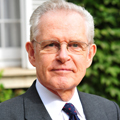Over the years I have come to understand what an economist said more than a century ago: there are no absolute truths in the social sciences (except this, he added). Therefore, I will not say yes or no to benchmarking Social Responsibility.
However, answering this question well requires us to talk at length about what Social Responsibility is, why and how we do it, and so on.
If the reader answers that Social Responsibility is what everyone does because society demands it, that it has to be done because one day it will be obligatory, and meanwhile I mustn’t appear irresponsible, of course, I will say yes, it is best to see what others are doing, copy them and, if we are going to copy, copy those who do it well.

That’s benchmarking. Well, not exactly: it’s comparing ourselves with those who do it better in order to learn.
If you tell me that you do it because everyone does it and it’s OK, then copy. But if you tell me that you do Social Responsibility because you are responsible in all your actions and in every corner of your company, that every day your desire to improve is greater, then I will tell you to avoid benchmarking. Or, better still, learn from the best, but do not copy them.
What happens is this: if the best do Social Responsibility because it is ingrained in them, because they yearn for it, because they are constantly asking how they can improve, then it is difficult to learn lessons from them. The issue is not about doing what they do, but about thinking how they think in order to do what you think you should do, not because it is what they do, but because you always want to be responsible and work at the highest level. By all means, try it. Look at what they do, but not to copy them for the sake of copying, but to open new horizons on what you must do.
And, of course, do not ask them what else you should do, because Social Responsibility is not, in my opinion, about doing more, though I am aware that some make a living by imposing obligations on others. A responsible driver is not the one with the most flashers, horns, television cameras and alarm clocks so as not to fall asleep, but the one that looks ahead and tries to drive better each day. If to do this you need to do more, do it, but the question is not “what else should I do?” but “what should I do better?”


